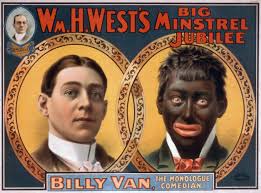minstrel
英 [ˈmɪn.strəl]
美 [ˈmɪn.strəl]
- n. 歌手,艺人;吟游诗人
使用频率:

记忆方法
将“minstrel”拆解为“min”和“strel”。想象“min”是一个小个子人,而“strel”指的是弹奏乐器的人。组合起来,可以想象一个身材瘦小、技艺高超的游吟诗人(minstrel),他弹奏着乐器在各地游历,这样的形象有助于记忆“minstrel”这个词,其意思为游吟诗人或吟游歌手。
以上内容由AI生成, 仅供参考和借鉴
中文词源
minstrel 游方艺人
来自拉丁语minister,仆人,王室随从,在古法语时期引申词义小丑,弄臣,后用于指歌手,乐伎,游吟诗人等。
英语词源
- minstrel
-
minstrel: [13] Originally minstrel, like its close relative minister, denoted a ‘servant’. Its musical associations are a comparatively recent development. It goes back ultimately to late Latin ministeriālis ‘official’, a derivative of Latin ministerium (source of English ministry). Old French took it over as menestral, and it was here that a gradual specialization in meaning took place, from ‘servant’ via ‘entertainer’ to ‘singer’.
=> minister - minstrel (n.)
- early 13c., from Old French menestrel "entertainer, poet, musician; servant, workman; good-for-nothing, rogue," from Medieval Latin ministralis "servant, jester, singer," from Late Latin ministerialem (nominative ministerialis) "imperial household officer, one having an official duty," from ministerialis (adj.) "ministerial," from Latin ministerium (see ministry). The connecting notion is via the jester, etc., as a court position.
Specific sense of "musician" developed in Old French, but in English until 16c. the word was used of anyone (singers, storytellers, jugglers, buffoons) whose profession was to entertain patrons. Only in 18c. was the word limited, in a historical sense, to "medieval singer of heroic or lyric poetry who accompanied himself on a stringed instrument." Reference to blackface music acts in U.S. is from 1843.
权威例句
- 1. The Negro minstrel is touring the country.
- 那个黑人歌舞团正在全国各地巡回演出.
- 2. A strong love has sprung up between the minstrel and the king.
- 于是吟游诗人与国王之间就产生了深厚的感情.
- 3. The young minstrel had a rare, rich voice.
- 这个青年歌手有一幅稀有的嘹亮嗓音.
- 4. The first of all the negro minstrel shows came to town, and made a sensation.
- 一流的黑人演奏队来到了这个小镇, 引起了轰动.
- 5. The minstrel had been to many places before he came here.
- 在来到这里之前,这个吟游诗人已经去过很多地方.